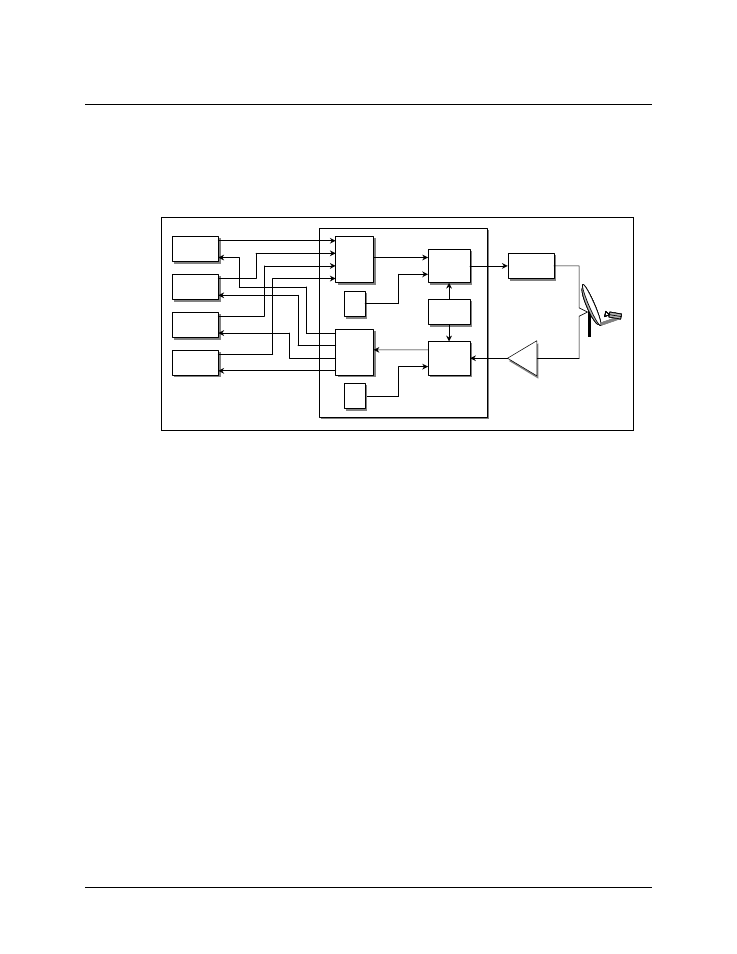Uncertainty for 1 ppm modem and 0.02 ppm buc – Comtech EF Data DST User Manual
Page 63

Digital Satellite Terminal System
Revision 1
Operation
MN/DST-IOM
A–5
A.1.3.2
Uncertainty for 1 ppm Modem and 0.02 ppm BUC
In multi-carrier applications, the carriers from several L-Band modems operate through
an LNB and BUC. In these situations the modem does not supply the high stability 0.02
ppm frequency reference or the ODU (BUC) power supply. They are provided by a
separate piece of equipment that also combines the Tx carriers and divides the RX signals
as illustrated in Figure A-3.
Figure A-3. Multi-Carrier Application With 1 ppm Modem
This topology relaxes the frequency stability requirements for the modem because the
ODU no longer depends upon it for the 0.02 ppm reference. A 1.0 ppm stability for the
modem is adequate for operation at L-Band. The symbol rate versus satellite frequency
uncertainty for this application is plotted in Figure A-4 for cases with both internally and
externally referenced LNBs. This figure is similar to the previous one but the curves are
all displaced several kilohertz higher reflecting the relaxed 1.0 ppm frequency uncertainty
for the modem.
The combination of a 1.0 ppm modem with the L-Band summer and splitter, ODU / BUC
and LNB power supplies and 10 MHz reference simplify the implementation of a multi-
carrier solution. By tasking the modem only with transferring L-Band signals the messy
details of also handling DC and 10 MHz reference are avoided. The external unit injects
the DC and 10 MHz reference on the satellite side of the splitter / summer minimizing the
losses incurred if these signals were routed from the modem.
L-Band
Σ
L-Band
Σ
Tx Mux
Tx Mux
L-Band
÷
L-Band
÷
BUC
BUC
LNB A
LNB A
10 MHz
0.02 ppm
10 MHz
0.02 ppm
ODU
PS
ODU
PS
LNB
PS
LNB
PS
Rx Mux
Rx Mux
L-Band
Modem
L-Band
Modem
L-Band
Modem
L-Band
Modem
L-Band
Modem
L-Band
Modem
L-Band
Modem
L-Band
Modem